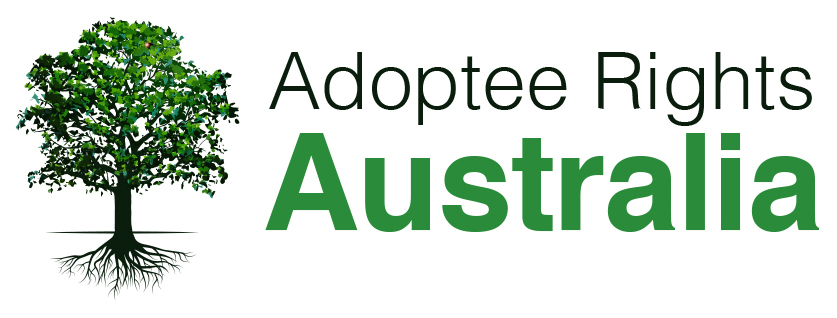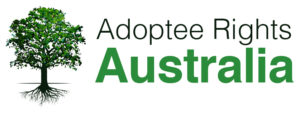31st July 2020
Adoptee Rights Australia (ARA) Inc. appreciates the opportunity to provide comments on the Meriba Omasker Kaziw Kazipa (Torres Strait Islander Traditional Child Rearing Practice) Bill 2020. We wish to note that because of the short time frame available for submissions, we would appreciate being invited to expand on our points at the Brisbane public hearing on the 10th August, 2020.
ARA is an independent adoptee advocacy organisation which advocates for reform in adoption legislation, policy and services in all Government jurisdictions in Australia, so that the human rights and wellbeing of adopted persons are restored, protected and promoted.
ARA fully supports initiatives that seek to recognise the cultural practices of Torres Strait Islander people, and does not seek to make comment on those practices. ARA also does not consider that all children can be brought up in the families they are born into.
Current practice and policy in adoption today in Australia generally recognises the profound need to know the facts of our births, and this is a separate issue to ARA’s advocacy around the extension of this concept to the right to a true identity. We recognise that this is not the forum to debate whether any form of adoption should occur at all.
Our concern in this submission is that the interpretation and operationalisation of the Ailan Kastom child rearing practice under Queensland law in this Bill has long-term implications for the child-then-adult around universally accepted concepts of identity and identity formation, and therefore their rights and best interests throughout their life.
Some of the issues:
- The confidentiality clauses appear to deny the person who is the subject of an Ailan Kastom child rearing practice from applying for their information even when they reach adulthood if they are aware they are the subject of the practice, and this is available to most adoptees and is generally recognised as being a crucial aspect of identity formation in all human beings.
- There is no right of the person who is the subject of an Ailan Kastom child rearing practice to be made aware that this has occurred written into the Bill.
- The right to information about origins is also interwoven with that of the importance of having access to your family medical information, and without a requirement to advise the subject of an Ailan Kastom child rearing practice order could be life threatening.
- There are issues of relationships, marriage and consanguinity when origins are hidden and denied. This is especially relevant in smaller, close-knit communities.
- The lack of knowledge that they are under an Ailan Kastom child rearing practice could also have affected any representation of stakeholders who may not be aware that this Bill applies to their circumstances.
- The requirement that only one birth parent be Torres Strait Islander means that if someone who has only one birth parent who is Torres Strait Islander, and who is the subject of an Ailan Kastom child rearing practice then the culture of the other parent is ignored in the assignation of their new identity. They also potentially are never made aware of the existence of another culture that contributes to around half of their genetic makeup.
- ARA is concerned about how “any decision under the Bill, including deciding to make a cultural recognition order, must be for the wellbeing and best interests of a person who is the subject of an application for a cultural recognition order and must be made for the wellbeing, and in the best interests, of the child;”
is reconciled with the stated reasons traditionally associated with Kupai Omasker:
“Known culturally as Kupai Omasker, before a child is born, senior family members look at a number of factors to decide if that child should be raised by another relative. Reasons might include:
– To carry on the family name;
– Strengthen family ties;
– Ease the burden on a young mother;
– Give an infertile relative the chance to raise a child, or;
– Provide comfort and care to an ageing family member.”
as it appears that the majority of these reasons are not about the child-then-adult’s best interests.
- The existence of easy access to DNA tests, and the numbers worldwide now who have tested being in the tens of millions, and growing, means that the development today of any legislation prohibiting the revelation of someone’s genetic ancestry needs to recognise the availability of other means of discovery for the person affected. It is essential that the shock and effects of finding out are taken into account and recognised when attempting to translate cultural practices that arose when DNA testing did not exist.
ARA Inc.
| Postal address: | PO Box 976
Toronto NSW 2283 |
| Email: | [email protected] |
| Website: | www.adopteerightsaustralia.org.au |
Contributors:
This submission was prepared by Sharyn White for Adoptee Rights Australia (ARA) Inc.

